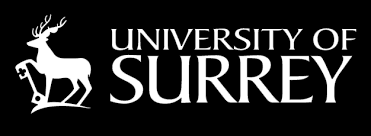SurreyDLT - University of Surrey DLT Testbed
The Surrey Blockchain testbed comprises:
- Technology infrastructure integrating multiple DLT platforms running research prototypes for our
projects primarily over public and private Ethereum test networks of which we are members.
- World-leading expertise at the fusion of AI and Blockchain technologies with a socio-technical
focus to our research that explores not only the technologies but also the socio-economic systems within
which it is feasible for them to operate
- Access to a diverse eco-system of end-users with whom we engage for participatory design and trial
of our DLT prototypes.

Infrastructure
Each project demands specific DLT attributes: ARCHANGEL a shared permissioned chain maintained across multiple
archives, CoMEHeRe a permissioned public ledger (this project also requires Smart Contracts), and TAPESTRY a
fully unpermissioned public chain. We have implementations running on the Multichain (open source), Guardtime
(proprietary) and Ethereum test networks - for the latter we participate in the public Rinkeby network and administer our own private campus test network 'SurreyDLT'
for development.

Expertise
Surrey is unique in fusing expertise across disciplines, drawing upon both the faculties of social science
(FASS) and of engineering (FEPS). Our Centre for Vision Speech and Signal Processing (CVSSP) has over 30
years of pioneering research in AI and Multi-modal signal processing that provides Surrey with a unique position fusing secure data aggregation via Blockchain with sense making of
that data (AI and Machine Learning). Our Surrey Centre for Cyber Security (SCCS) is one of only twelve
GCHQ Accredited Centres of Excellence for Cyber-security in the UK and brings world-leading expertise in
crypto-systems particularly around homomorphic / zero-knowledge proofs that are seeing increased relevance
to DLT. Our Centre for Digital Economy (CoDE) has long-standing track record of leading digital
transformation in business through introduction of new technologies and agile working practices.

End-users
All of our projects adopt a participatory design process in which technologies are co-developed alongside new
working practice in tight integration with end-users. This ensures not only fitness for purpose but provides a
broad pool of end-users across diverse domains for further research and feasibility trials. These domains
include: digital records, public healthcare, govtech, trust identity security and privacy (TIPS). We have
strategic partnerships with several companies innovating DLT platforms spanning govtech (e.g. digital
transformation in government) and fintech (e.g. micropayment platforms for cryptocurrencies).






